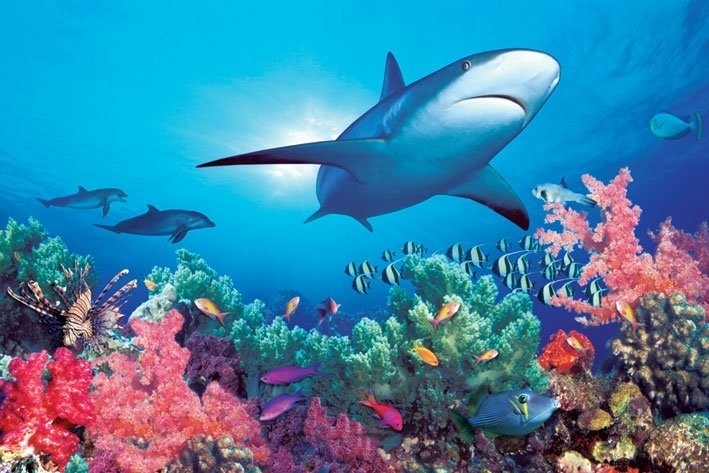We live too fast. Too fast to enjoy and to give something back. Today I read an article on a huge research done by the World Wildlife Fund (WWF) on sea life. The name of this report was the Living Blue Planet. The article was published on the NOS news site and removed from it half an hour after publication. Probably the news wasn’t that entertaining. But anyway; the research stuck to my mind. To summarize the paper in one sentence: human being is destroying the ocean. The report shows a decline of 49 per cent of marine populations, of which 34 per cent lived in coral reefs. In 2050 we could lose all the coral reefs we now so greatly enjoy and need. Causes? Failing fisheries, climate change and…we. Yes, we are the root cause of all this. We all are killing the nature we live in.
Today we need to buy as much cheap (bad) products as possible to satisfy our needs. It even does not have to be bad, we just need something to satisfy ourselves. Garbage? Plastic? Mother nature surely is creative, she can get rid of that. In somewhat extreme words ‘all what matters is me’. But it comes down to the same core; we as human being think in one-way traffic. Nature gives us food, water, wind, sun and beauty. In fact I believe our Creator all gave this to us to live on this earth. For free we enjoy all the good sides of nature. Some have more water, some have more sun, but we all get it. And we enjoy it, and what is wrong with that? Why would we worry?
In fact everyone recognizes him or her in the previous paragraph, including myself. We all like to receive and satisfy our needs. But why do not pay attention to the source we all get it from? The problem is; the profits outweigh the (current) costs. Today’s fishery makes trillions of dollars, bad produced products are just way cheaper than special responsible products. We just don not experience the unbalance in our daily lives. Why giving something back when we do not see it’s positive impact?
A change in mindset is necessary. People live as individuals in the here and now. During this course I started to think with another mindset: we live collectively for the future. We have the collective moral responsibility to look after our future generations. In Dutch we have a beautiful word for that: ‘rentmeesterschap’. We are so called agents to look after the nature. We have a duty to do that. That is possible, by thinking in possibilities. The Living Blue Planet Report ended with a list of great opportunities for communities to secure a living ocean. The only thing we need? A change of mindset: live for the future to enjoy now!
Only by collectively changing our mindset the human race will continue to enjoy all the beautiful gifts nature has for it.
Corné Smaal / Business Administration / Erasmus University
